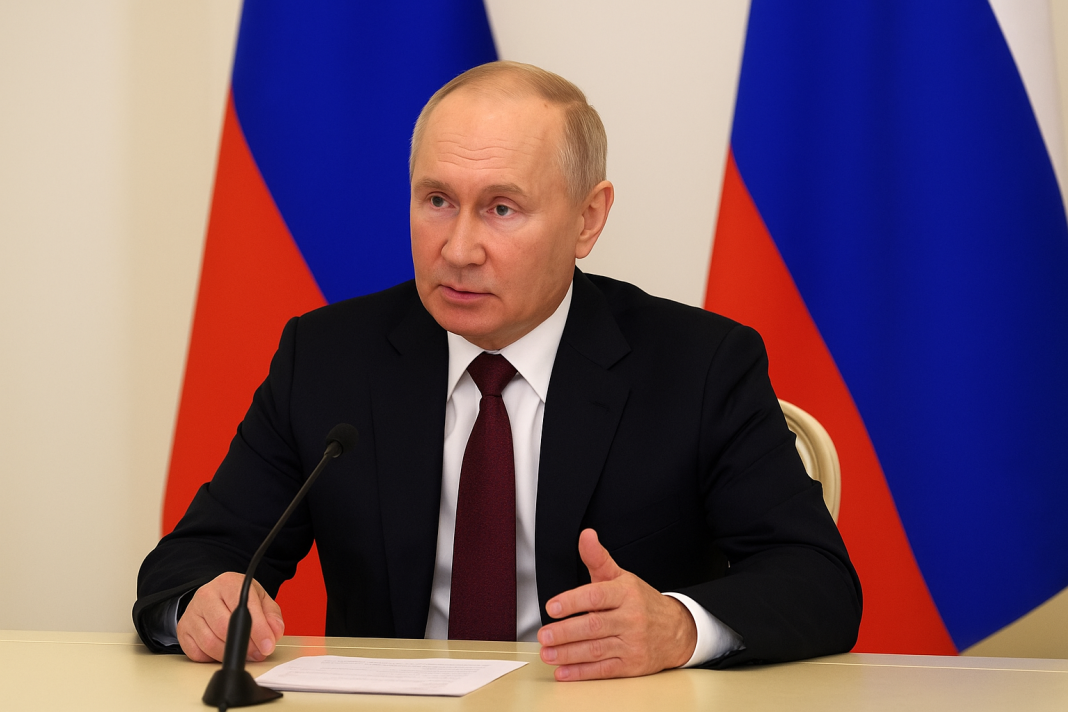Russian President Vladimir Putin issued a strong warning during the Eastern Economic Forum held on Friday, September 5. While speaking at a panel discussion, he declared that any NATO troops found in Ukraine would be considered “legitimate targets” by Moscow. His remarks were direct and left no room for doubt about Russia’s stance.
Putin’s Warning Against NATO Troops in Ukraine
This statement comes at a time when several NATO member states, including France and the United Kingdom, are pledging security commitments to Kyiv. These promises will take form once the war ends. For now, however, Putin’s comments place the focus back on the ongoing conflict and show how Russia views the involvement of foreign soldiers.
The Russian president explained that Ukraine moving closer to NATO caused one of the main triggers of the conflict. He called this move a “root cause” of the war and argued that Moscow found attempts to expand the alliance eastward unacceptable. In this context, Russia views the presence of NATO troops inside Ukraine, whether during or after hostilities, as a major provocation.
Putin warns of NATO expansion as Russia cites security concerns from Beijing speech
Putin stressed that if such troops appeared during active fighting, Russia would not treat them as peacekeepers or observers. Instead, Moscow would see them as part of the conflict itself. This, he said, would make them “legitimate targets for destruction.” His words underline Russia’s readiness to respond if foreign soldiers enter the battlefield.
NATO Troops and Security Pledges to Ukraine
In recent months, NATO countries have stepped up their support for Ukraine. France and the United Kingdom have been vocal about the possibility of sending additional aid, offering training, and even discussing troop presence as part of long-term guarantees. These commitments aim to reassure Kyiv that it will not remain isolated after the war.
No NATO, but U.S. protection—Trump redraws Ukraine’s defense future with Article 5 twist
However, Putin’s warning casts a shadow over these discussions. By calling NATO troops “legitimate targets,” Russia makes it clear that it sees any physical presence of alliance soldiers inside Ukraine as direct participation in the conflict. Moscow has repeatedly said it considers the act of placing soldiers on the ground unacceptable, and it stresses the significant difference between providing weapons and actually deploying troops.
Russia has always viewed NATO’s involvement as a threat to its security. For decades, the alliance’s expansion closer to Russia’s borders has created a sore point. Moscow argues that this encroachment strips away its strategic depth and raises tensions. In Putin’s view, the war in Ukraine connects directly to these security concerns, and the presence of NATO troops only deepens the problem.
A Conflict Centered on NATO’s Role
Since February 2022, Western nations have been heavily involved in aiding Ukraine, though not with combat forces. Support has mostly come in the form of advanced weaponry, intelligence sharing, and financial assistance. While this has been critical for Ukraine’s defense, it has also fueled Moscow’s anger.
Putin backs Ukraine’s EU option but repeats NATO membership remains a red line for Moscow
Putin’s remarks on September 5 highlight how the issue of NATO troops is central to Russia’s narrative about the conflict. By framing the alliance’s presence as one of the root causes of war, Moscow emphasizes its long-standing objection to NATO’s role in Eastern Europe. The idea of Western soldiers stepping into Ukraine crosses a red line for Russia, which insists that such actions would make those forces part of the fighting.
The Russian president’s comments serve as a reminder of the fragile balance in the region. Even though NATO countries have not formally deployed their troops to Ukraine, their increasing support continues to shape the conflict. For Moscow, however, the arrival of NATO troops inside Ukraine, at any stage of the war, would turn them into direct opponents.

